The discipline of gymnastics has its roots in ancient Greek physical exercises, but the father of modern gymnastics is widely acknowledged to be the nineteenth-century German gymnastics educator Friedrich Ludwig Jahn. Jahn is credited with the invention of number of gymnastic apparatuses (the vaulting horse, parallel bars, balance beam, and rings), the founding of the first open-air gymnasium in Germany, and the popularization of gymnastics as a competitive sport.[1] [2] He became a national hero in Germany, where there are many statues and monuments dedicated to him and more streets named after him than even Friedrich Schiller.[2] [3] Nonetheless his legacy remains controversial because he was an ardent German nationalist and influenced the National Socialists.
Jahn was the son of a Lutheran pastor and studied theology and philology at the Universities of Halle, Göttingen, and Greifswald with the intent of becoming a teacher. But his rebellious nature brought him into conflict with authority figures, and he abandoned an academic career.[3] [4] At the age of 28 he joined the Prussian army following Prussia’s humiliating defeat at the twin battles of Jena and Auerstädt in 1806. A year later the second Treaty of Tilsit forced King Frederick William III to cede half of Prussia’s territory. Jahn attributed Prussia’s military annihilation to its isolation from its German neighbors and to the lack of national consciousness among German states compared to the nationalistic fervor that energized the French. Thus he came to advocate German unification.
During Napoleon’s German Campaign of 1813, Jahn fought with the well-known Lützow Free Corps (known as the “Schwarze Jäger”), a volunteer force of the Prussian army consisting of three to four thousand members.[4] [5] The unit was formed after the king issued a proclamation summoning Prussia to war against the French. Most famous among its members was the poet Theodor Körner, whose patriotic verse and death in battle rose him to the status of a national hero. Jahn was also noted for his courage and was later decorated with the Iron Cross.[5] [6]
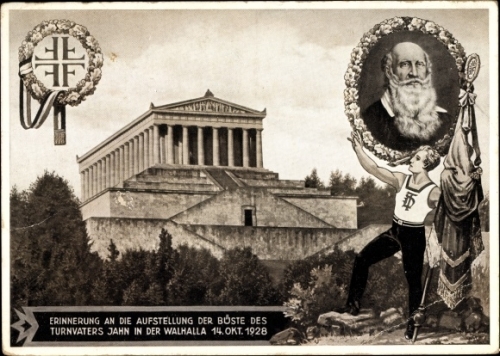
Jahn promoted gymnastics (Turnen) both as something that would physically prepare young German men for battle as well as strengthen the spirit and restore dignity to the German people. He sought to form a people’s militia composed of civilians from all levels of society united in their desire to fight for the nation. Thus he disliked the term Soldat due to its association with the word Sold, referring to wages paid to mercenary soldiers.[6] [7]
In 1811 he built the first open-air gymnasium in Germany (in the Hasenheide park in Berlin) and founded a gymnastics school toward this end. Five hundred boys participated in the first gymnastics demonstration.[7] [8] This launched a broader movement that led to the founding of dozens of gymnastics schools and clubs (Turnvereine), which also functioned as nationalist organizations. Five years later Jahn published Deutsche Turnkunst, a treatise containing instructions for physical exercises that influenced the development of modern gymnastics.[8] [9] Gymnastics became a part of the curriculum in Prussian schools.
Jahn believed that physical exercises should be practiced outdoors in order to cultivate a connection to the land. He also promoted sports such as swimming, hiking, fencing, etc. He was known to lead the Turners on long walks through the countryside during which he would regale them with legends about heroic deeds from past eras.[9] [10] Jahn’s Turnbewegung espoused a “back-to-nature” ethos that prefigured the Wandervogel movement, which was to emerge about a century later and in turn influenced the Hitler Youth.
The völkisch populism of the Wandervogel movement can also be traced back to Jahn, who championed the common man and promoted physical activity as something in which all Germans could take part. All Turners wore the same uniforms and addressed each other with the informal “du.”[10] [11] Jahn was considered a liberal revolutionary in his day. His movement symbolized a populist revolt against the old order and the conservative establishment, as he sought to weaken class hierarchies and subject the ruling dynastic houses to the state. He lent support to the reforms of Baron vom Stein, who abolished the institution of serfdom, implemented land reform, and restructured Prussia along republican lines. Indeed Baron vom Stein appealed to him personally for cooperation, as well as to Johann Gottlieb Fichte, Friedrich Schleiermacher, and Heinrich von Kleist.[11] [12]
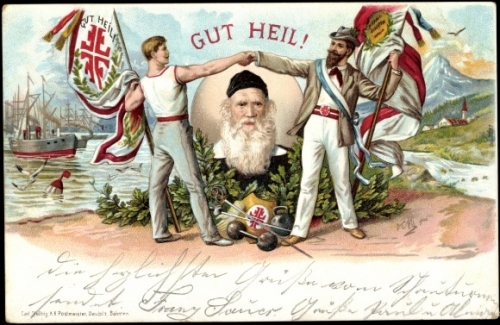
A few decades later, the young Wagner was to participate in the May Uprising in Dresden alongside Bakunin similarly in the name of German nationalism.
Idealistic young men joined Jahn’s movement in the thousands. His charismatic personality contributed to the movement’s popularity. He was known for his fiery orations and frankness in speech, eschewing “French” politeness. He had long, uncombed hair and in his university years had a penchant for living in a cave that today bears his name. At a dinner hosted by Staatsminister von Hardenberg (who with Baron vom Stein was the architect of the Prussian Reform Movement), he showed up in athletic clothes and boots but fascinated the other guests, who were eager to meet him.[12] [13]
His ideas caught on among many university students, who organized themselves into nationalist fraternities (Burschenschaften) inspired by Jahn’s organizations. Their slogan was “Honor, Liberty, and Fatherland.”[13] [14] The first Burschenschaft was founded in June 1815, directly following the Congress of Vienna and subsequent creation of the German Confederation.[14] [15] A number of its original members had taken part in the recent War of the Sixth Coalition and were associated with Jahn’s Turnbewegung.
On October 18, 1817, 500 Burschenschaft members convened at the Wartburg in order to hold a festival in honor of German nationalism and to protest the reactionary opposition to German unification.[15] [16] The Wartburg was chosen due to its significance as the site where Martin Luther found refuge after the Diet of Worms and translated the New Testament into German. The date commemorated the fourth anniversary of the Battle of Leipzig (in which Napoleon was decisively defeated) and also approximated the 300th anniversary that Martin Luther is said to have nailed his Ninety-Five Theses to the door of the Castle Church in Wittenberg. Martin Luther was a hero to German nationalists on account of his rejection of papal power and foreign influence. Jahn also saw Luther as a national symbol whose translation of the Bible into German paved the way for German unification:
Thus Luther became for the entire German people one who shows the way, awakens, renews life, and provides the most noble defence of the spirit, the herald of a future form of literature and the patriarch of a one day great German nation. … Through the German language he gave his people a unifying spirit, which later on inspired all the great pioneers who immortalized exemplary German in their works.[16] [17]
After the festival ceremonies, Jahn’s followers organized a book burning in which copies of anti-German, anti-nationalist books were destroyed. For instance, among them was a book entitled Germanomanie by the Jewish writer Saul Ascher, who singled out Jahn’s gymnastic movement in his criticism of anti-foreign and anti-Jewish prejudice (German Jews were nearly unanimously pro-French).[17] [18] This was the first modern book burning in Germany and inspired the book burnings of the National Socialists.
Also among the books burnt was one by the popular dramatist August von Kotzebue, who was thought to be a Russian spy and an enemy of German nationalism. Kotzebue was later assassinated by Karl Ludwig Sand, a member of a nationalist student fraternity.[18] [19] This provided a pretext for Metternich to enact the Carlsbad Decrees, which were passed in 1819 as an attempt to suppress nationalist sentiment. Nationalist student organizations such as the Turnvereine and associated fraternities were banned. Jahn was sentenced to six years in prison and his gymnastics schools were shut down. Many of his followers were placed under supervision.[19] [20] The rise of restorationist tendencies also put an end to the Prussian Reform Movement.
Jahn lived under police surveillance until his death. The ban on gymnastics was not lifted until 1842.[20] [21] Nonetheless by the 1830s gymnastics had been revived underground and later contributed to the growth of German nationalism leading up to the 1848 Revolution.
Jahn’s political views are outlined in his most notable work, Deutsches Volkstum (published in 1810), in which he describes his vision for Germany and his argument for German unity. The text involves detailed discussion of administrative matters such as issues of jurisprudence, where border lines should be drawn, how taxes should work, where Germany’s capital should be (calculated with mathematical exactness), etc., as well as the role of culture, ideology, and education in the formation of a German state.
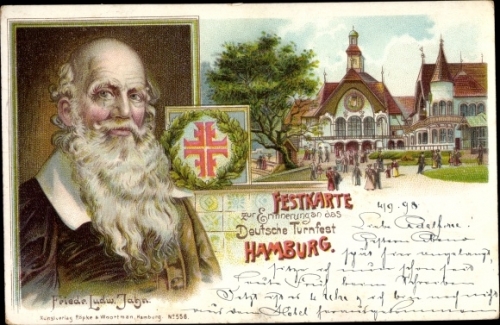
The term Volkstum was his own coinage and could be translated as that which encompasses the defining characteristics of a given people: language, ethnicity, folklore, etc. Jahn described it in almost poetic terms: “It is that which is shared in common, the inner essence of the Volk, its rain and life, its regenerative power, its reproductive ability.”[21] [22] His definition of the German Volkstum had an implicitly ethnic dimension, and in Deutsches Volkstum he condemned miscegenation.[22] [23] Jews were excluded from his definition of the German Volk.
Jahn strongly believed that the Volk must become one with the state and vice versa: “A state is nothing without a Volk, a soulless piece of art; a Volk is nothing without a state, a lifeless, airy ghost, like the nomadic Gypsies and Jews. The state and the Volk united thus yield the Reich. …”[23] [24]
Germany under the Holy Roman Empire consisted of over 300 autonomous German-speaking states, the majority of which Napoleon consolidated into 16 larger client states following the Empire’s demise in 1806, forming a loose military alliance known as the Confederation of the Rhine. The Confederation grew to include 36 states. Napoleon’s eventual defeat then paved the way for the Congress of Vienna, whose objective was to ensure stability by bolstering the power of European monarchies and weakening nationalist movements. This led to the creation of the German Confederation in 1815, a similarly weak collection of states that lacked centralized power. German unification did not become a reality until 1871, when Kleinstaaterei came to an end with the founding of the German Empire.
Jahn was one of the most influential early proponents of German national unity, along with Ernst Moritz Arndt and Johann Gottlieb Fichte. Jahn’s Deutsches Volkstum and Fichte’s Addresses to the German Nation were thought to be the most significant German nationalist texts at the time.[24] [25] Jahn’s works are less intellectually complex than Fichte’s, but the two held similar political views. Jahn adopted Fichte’s belief that German unity must be achieved through a program of national education, though he amended this to focus on physical education in particular.
Like Fichte, Jahn ardently defended the German language. At the time French was considered a fashionable language among the nobility and the aspiring middle classes, while German was considered common. Jahn condemned this and sought to restore German as the language of culture and politics in Germany. He believed that language was integral to national identity:
Every people dignifies itself through its mother tongue, in which the documents of its cultural history are recorded. … A people that forgets its own language gives up its right to have a say among humanity and is given a silent role on the world stage.[25] [26]
Jahn was fanatical in his linguistic purism and rejected all foreign loan words. He and his followers devised German terms for physical exercises and equipment as alternatives to the standard French terminology that was used at the time to describe the sporting pastimes of the aristocracy. Thus “rapier” became “Fechtel,” “croisé” (a fencing term) became “Scheere,” “balancer” became “schweben,” etc. They also introduced German words commonly used by hunters, sailors, carpenters and other tradesmen into the terminology of gymnastics.[26] [27]
Both Jahn and Fichte also were influenced by the ideas of the Swiss pedagogue Johann Heinrich Pestalozzi, who sought to give the poor access to education and was responsible for raising literacy rates in Switzerland. Pestalozzi’s approach emphasized the importance of giving children a holistic education that strengthened the mind, character, and body rather than simply administering rote learning techniques to them. Thus Jahn proposed teaching artisanal skills in schools (as did Fichte), since he believed that engaging in physical labor would prevent students from becoming cut off from everyday life.[27] [28]
Jahn focused on physical education but also proposed reforms to education and schooling in general. Many of his followers were university students and academics (as were many members of the Lützow Free Corps). He envisioned that schools could serve as breeding-grounds for nationalist sentiment, stating that “public educational institutions are a means through which a volkstümlich public spirit and a patriotic way of thinking can be conveyed.”[28] [29] For this purpose he proposed the creation of anthologies of German songs and myths and legends that would be studied in schools and universities.[29] [30] He also argued that all children should be granted access to state-sponsored elementary school education.[30] [31]
For decades the only English-language study of Jahn was a chapter in Peter Viereck’s Metapolitics: From Wagner and the German Romantics to Hitler. The book provoked debate upon its publication in 1941 because Viereck traced the philosophical and ideological roots of National Socialism to German Romanticism rather than equating it with Prussian militarism or considering it a reaction to purely economic phenomena. As a moderate conservative and son of the German-American writer and Nazi sympathizer George Sylvester Viereck, whom he denounced, Viereck perhaps had an agenda in linking National Socialism to German Romanticism and the liberal nationalism that arose from it. However, the general thrust of his argument is correct.
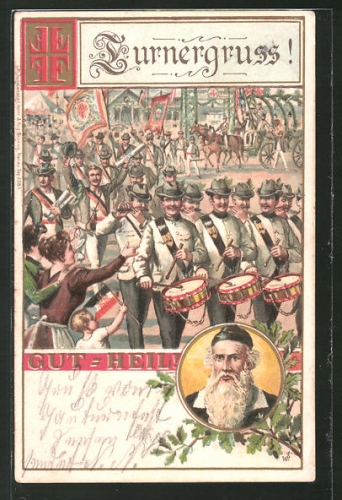 There are some differences between Jahn and the National Socialists: Jahn’s gymnastics unions were loosely organized and lacked hierarchies of authority, whereas the Hitler Youth was highly regulated and its program of physical education was more regimented and militaristic. Nonetheless both upheld a völkisch “blood and soil” worldview. For both the purpose of physical exercise was twofold: to prepare youths for combat by strengthening the body and mind and to instill in them a sense of national unity and purpose. Furthermore Jahn’s movement and National Socialism were both populist in nature (unlike the conservatism of the Prussian Junkers, as Viereck points out). Jahn endorsed classless communitarianism and likewise National Socialism was a mass movement that transcended class lines.
There are some differences between Jahn and the National Socialists: Jahn’s gymnastics unions were loosely organized and lacked hierarchies of authority, whereas the Hitler Youth was highly regulated and its program of physical education was more regimented and militaristic. Nonetheless both upheld a völkisch “blood and soil” worldview. For both the purpose of physical exercise was twofold: to prepare youths for combat by strengthening the body and mind and to instill in them a sense of national unity and purpose. Furthermore Jahn’s movement and National Socialism were both populist in nature (unlike the conservatism of the Prussian Junkers, as Viereck points out). Jahn endorsed classless communitarianism and likewise National Socialism was a mass movement that transcended class lines.
Physical exericse was a core element of National Socialist ideology. Turnen was a component of the 25-Point Programme of the NSDAP and German boys and girls alike took part in physical conditioning. The synchronized gymnastic demonstrations in the Third Reich would have resembled the demonstrations of Jahn’s gymnasts on the Turnplatz in Berlin. The Turners’ demonstrations were ceremonial spectacles that made use of bonfires and torch-lit processions, not unlike National Socialist rallies.[31] [32] Gymnasts in Jahn’s day also performed in national festivals celebrating German folklore and tradition.
Both Jahn and the National Socialists rejected the idea that physical education should emphasize individual results as ends in themselves; instead they saw physical exercise as a national activity. German Leibesübungen (as in the Nationalsozialistischer Reichsbund für Leibesübungen) were contrasted with Anglo-Saxon Sport, which focused more on personal results and mechanized individual training. The German approach focused less on quantifiable individual achievements; physical exercises instead served to strengthen the Volk as a whole.
The term Leib was used in contrast to Körper, as the latter has a purely biological connotation, whereas the former (a term for which there is no English equivalent) connotes the idea of the body as a living being encompassing the soul and mind as well as the physical body. This reflected both Jahn’s and the National Socialists’ belief that the mind could not be divorced from the body and that a healthy body was a prerequisite for a healthy mind.
Jahn was revived during the Third Reich era by the German philosopher Alfred Bäumler, best known for his writings on Nietzsche, who argued that he was a forerunner of National Socialism. He saw Jahn’s vision of a single state that united the German Volk as having anticipated the National Socialist conception of nationhood: “Jahn was the first to use the word ‘Reich’ for the ideal unity of people and state, thus in the sense that we use it today.”[32] [33]
Bäumler’s worldview was founded on his belief in the importance of the common good over the individual. He believed that the individual must be subordinate to the Volk and that each person was the property of the nation. Therefore he believed that physical education must be state-controlled. Like Jahn, he saw physical education as a political tool:
German physical activities could not be created from the needs and habits of the bourgeois society. They developed as a result of the political movements of the time of the struggles for liberation and they will be renewed by the political movement of our day. … German physical activities are in a comprehensive meaning of the word, political.[33] [34]
Jahn’s gymnastic movement is relevant to the modern struggle in a number of ways. The natural radicalism of the young has the potential to pose a significant threat to the system. Most modern youth subcultures diffuse this by trapping youthful rebelliousness within subcultural ghettos that are alienated from society at large. By contrast Jahn’s movement channeled the natural idealism and rebelliousness of young people toward direct political ends. His movement can serve as a model for modern Rightist youth movements.
His movement is also notable for its combination of free-spirited spontaneity and love of nature with physical strength and discipline. The youth movements of the 1960s embraced the former of the set but lacked the latter. But the two do not pose a contradiction: both represent manifestations of a vitalist worldview that places life and health at the center.
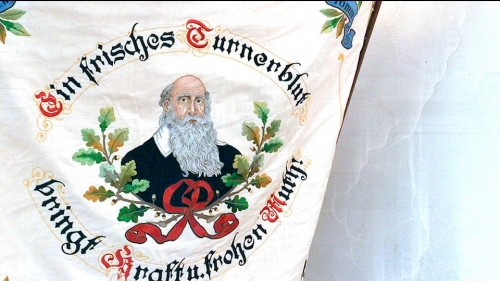
Jahn’s model of physical education represents an alternative to the highly commercialized and specialized world of modern organized sport. His belief that the mind, soul, and body were interconnected and interdepedent stands in stark opposition to the spirit of Cartesian dualism that characterizes the modern West. Furthermore a völkisch conception of physical education would counter the valorization of blacks prevalent in the modern sports world.
Lastly Jahn realized that in order to achieve German unification it was first necessary to raise the morale of the German people (“im Herzen das neue Deutschland aufzubauen”)[34] [35]. Today Europeans as a whole are likewise a conquered people, albeit in a different sense. When whites regain a sense of purpose as a race, political change will follow.
Notes
[1] [36] Encyclopaedia Britannica, 8th ed., s.v. “Friedrich Ludwig Jahn” (Chicago: Encyclopaedia Britannica, 2009).
[2] [37] Karoline Weller, “Der ‘Turnvater’ in Bewegung: Die Rezeption Friedrich Ludwig Jahns zwischen 1933 und 1990,” (Diss., Ludwig-Maximilians-Universität München, 2008), 5.
[3] [38] Christian Werth, Friedrich Ludwig Jahn und seine Ideologie (GRIN Verlag, 2009).
[4] [39] Rolland Ray Lutz, “‘Father’ Jahn and his Teacher-Revolutionaries from the German Student Movement,” The Journal of Modern History, vol. 48, no. 2, (June 1976): 5.
[5] [40] Werth.
[6] [41] Christopher Clark, Iron Kingdom: The Rise and Downfall of Prussia, 1600-1947 (Cambridge: Harvard University Press, 2006), 351.
[7] [42] Richard Holt, J. A. Mangan, and Pierre Lanfranchi (eds.), European Heroes: Myth, Identity, Sport (New York: Routledge, 2013), 19.
[8] [43] Werth.
[9] [44] Holt et al., 22.
[10] [45] Ibid., 21.
[11] [46] Ibid., 17.
[12] [47] Ibid., 22.
[13] [48] Jürgen Schwab, “Die Deutsche Burschenschaft – zwischen Anspruch und Wirklichkeit” (Haus der Alten Breslauer Burschenschaft der Raczeks, Bonn, September 3, 2004). https://sachedesvolkes.wordpress.com/2011/01/31/die-deuts... [49]
[14] [50] Ibid.
[15] [51] Ibid.
[16] [52] Friedrich Ludwig Jahn, Deutsches Volkstum, 109. There is no English edition of Deutsches Volkstum. The excerpts quoted in this article represent my rough attempts at rendering his old-fashioned German diction into English.
[17] [53] Shlomo Avineri, “Where They Have Burned Books, They Will End Up Burning People” (Jewish Review of Books, Fall 2017). https://jewishreviewofbooks.com/articles/2788/burned-book... [54]
[18] [55] Ibid.
[19] [56] Werth.
[20] [57] Ibid.
[21] [58] Jahn, 30.
[22] [59] Matthias Rittner, “Theorien und Konzepte nationaler Erziehung von der Deutschen Romantik bis zum Nationalsozialismus,” (Diss., Friedrich-Alexander-Universität, 2012), 152.
[23] [60]Jahn, 36.
[24] [61] Rittner, 78.
[25] [62] Jahn, 213.
[26] [63] Holt et al., 20.
[27] [64] Lutz, 20.
[28] [65] Jahn, 72.
[29] [66] Peter Viereck, Metapolitics: From Wagner and the German Romantics to Hitler (New York: Routledge, 2017), 78.
[30] [67] Ibid., 77.
[31] [68] Clark, 384.
[32] [69] Weller, 41.
[33] [70] Tara Magdalinski, “Beyond Hitler: Alfred Baeumler, Ideology and Physical Education in the Third Reich,” Sporting Traditions, vol. 11, no. 2. (May 1995): 64.
[34] [71] Carl Euler, Friedrich Ludwig Jahn: Sein Leben und Wirken (Stuttgart: Verlag von Carl Krabbe, 1881), 511.





 del.icio.us
del.icio.us
 Digg
Digg

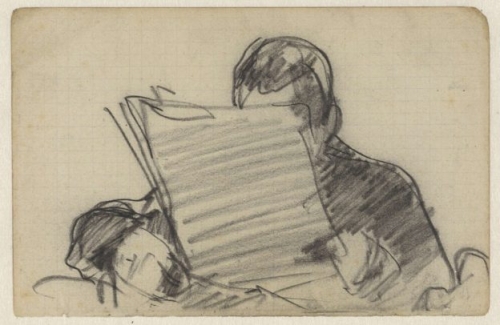


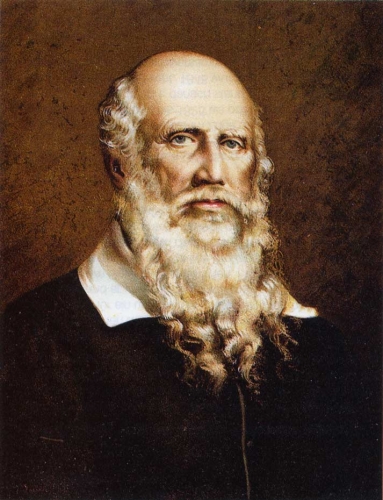




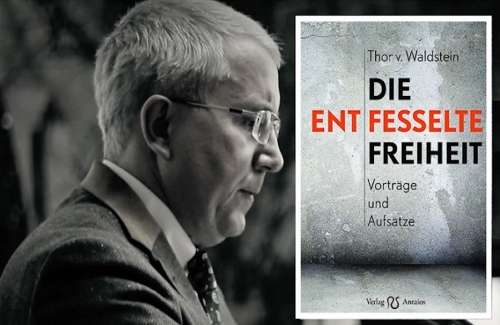


 Dennoch gelang es diesen Patrioten, im Verein mit mutigen Publizisten bemerkenswerte Schneisen in ein damaliges Meinungsklima zu schlagen, in dem die deutsche Teilung als „Garant des Friedens in Europa“ abgefeiert wurde. Ich erinnere nur an den großartigen, von Wolfgang Venohr 1982 herausgegebenen Band Die deutsche Einheit kommt bestimmt, der im Establishment für einige Unruhe sorgte.
Dennoch gelang es diesen Patrioten, im Verein mit mutigen Publizisten bemerkenswerte Schneisen in ein damaliges Meinungsklima zu schlagen, in dem die deutsche Teilung als „Garant des Friedens in Europa“ abgefeiert wurde. Ich erinnere nur an den großartigen, von Wolfgang Venohr 1982 herausgegebenen Band Die deutsche Einheit kommt bestimmt, der im Establishment für einige Unruhe sorgte.
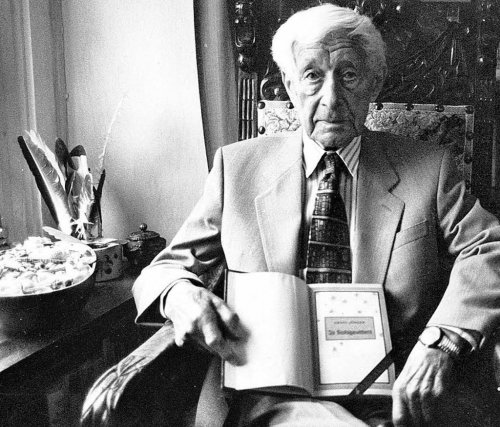





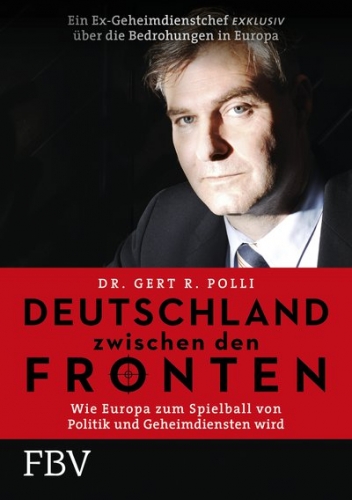 Le livre de Gert Polli,1 ancien chef des services de renseignements autrichiens, a été déjà brièvement présenté dans «Horizons et débats» no 22/23 du 18 septembre 2017. Ici suit une évaluation de quelques aspects. Dans sa préface, Polli constate que l’UE se trouve dans une spirale descendante, qu’elle n’arrive plus à en sortir et qu’elle y est de sa propre faute. L’UE tient à l’alliance transatlantique sans aucun esprit critique et à tout prix. La National Security Agency (NSA) est le seul profiteur de cette évolution, ce que l’élite européenne ne veut jusqu’à présent pas admettre. En outre, la reprise des buts de politique étrangère des Etats-Unis, sans aucune réflexion critique, rapproche l’UE dangereusement d’une confrontation politique et économique avec la Russie. Au niveau géopolitique, l’UE se laisse pousser dans une impasse de politique étrangère et économique, dans laquelle les Etats-Unis continuent à diaboliser la Russie. Comme exemple le plus frappant, Gert Polli désigne l’alignement factuel et le contrôle des services secrets européens sous la dominance des services américains. Sous le couvert de la lutte américaine contre le terrorisme, l’UE perd en dynamique et rejette de plus en plus ses propres valeurs: «L’Union européenne se trouve dans sa plus grande crise depuis son existence. Elle risque de se désintégrer». (p. 14)
Le livre de Gert Polli,1 ancien chef des services de renseignements autrichiens, a été déjà brièvement présenté dans «Horizons et débats» no 22/23 du 18 septembre 2017. Ici suit une évaluation de quelques aspects. Dans sa préface, Polli constate que l’UE se trouve dans une spirale descendante, qu’elle n’arrive plus à en sortir et qu’elle y est de sa propre faute. L’UE tient à l’alliance transatlantique sans aucun esprit critique et à tout prix. La National Security Agency (NSA) est le seul profiteur de cette évolution, ce que l’élite européenne ne veut jusqu’à présent pas admettre. En outre, la reprise des buts de politique étrangère des Etats-Unis, sans aucune réflexion critique, rapproche l’UE dangereusement d’une confrontation politique et économique avec la Russie. Au niveau géopolitique, l’UE se laisse pousser dans une impasse de politique étrangère et économique, dans laquelle les Etats-Unis continuent à diaboliser la Russie. Comme exemple le plus frappant, Gert Polli désigne l’alignement factuel et le contrôle des services secrets européens sous la dominance des services américains. Sous le couvert de la lutte américaine contre le terrorisme, l’UE perd en dynamique et rejette de plus en plus ses propres valeurs: «L’Union européenne se trouve dans sa plus grande crise depuis son existence. Elle risque de se désintégrer». (p. 14) 






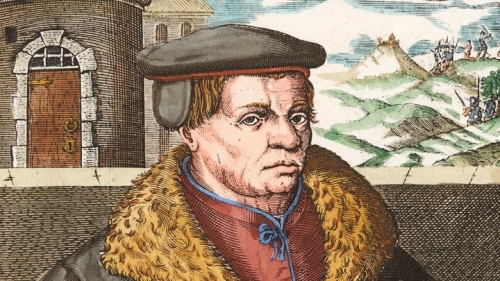
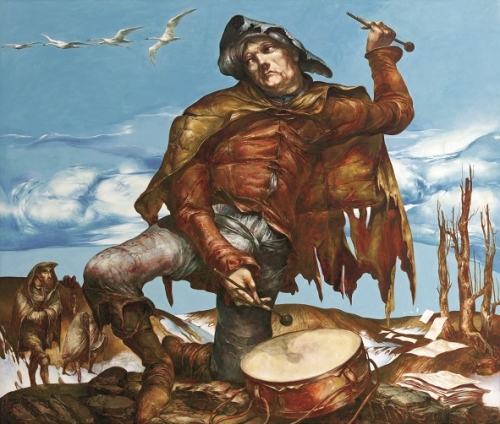
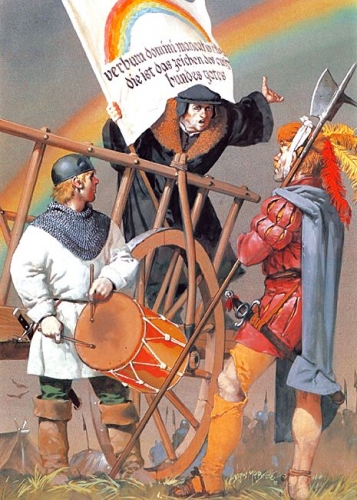
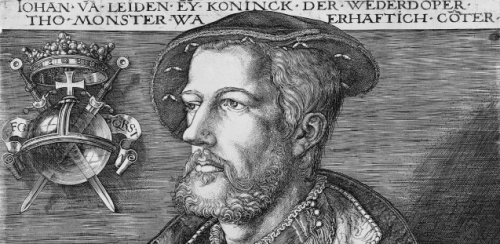


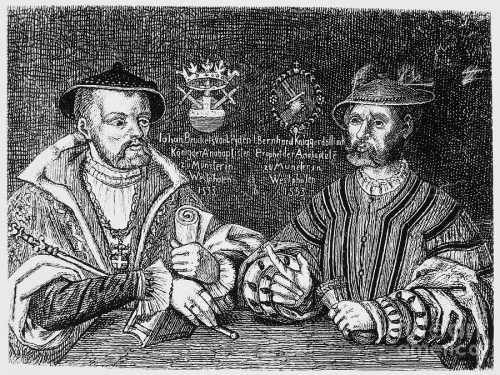
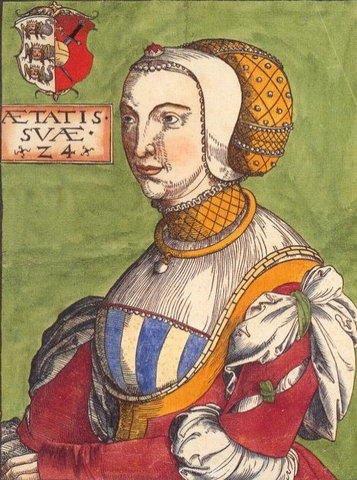 The poor hapless people of Münster were now doomed totally. The bishop kept firing leaflets into the town promising a general amnesty if the people would only revolt and depose King Bockelson and his court and hand them over. To guard against such a threat, Bockelson stepped up his reign of terror still further. In early May, he divided the town into 12 sections, and placed a “duke” over each one with an armed force of 24 men. The dukes were foreigners like himself; as Dutch immigrants they were likely to be loyal to Bockelson. Each duke was strictly forbidden to leave his section, and the dukes, in turn, prohibited any meetings whatsoever of even a few people. No one was allowed to leave town, and any caught plotting to leave, helping anyone else to leave, or criticizing the king, was instantly beheaded, usually by King Bockelson himself. By mid-June such deeds were occurring daily, with the body often quartered and nailed up as a warning to the masses.
The poor hapless people of Münster were now doomed totally. The bishop kept firing leaflets into the town promising a general amnesty if the people would only revolt and depose King Bockelson and his court and hand them over. To guard against such a threat, Bockelson stepped up his reign of terror still further. In early May, he divided the town into 12 sections, and placed a “duke” over each one with an armed force of 24 men. The dukes were foreigners like himself; as Dutch immigrants they were likely to be loyal to Bockelson. Each duke was strictly forbidden to leave his section, and the dukes, in turn, prohibited any meetings whatsoever of even a few people. No one was allowed to leave town, and any caught plotting to leave, helping anyone else to leave, or criticizing the king, was instantly beheaded, usually by King Bockelson himself. By mid-June such deeds were occurring daily, with the body often quartered and nailed up as a warning to the masses.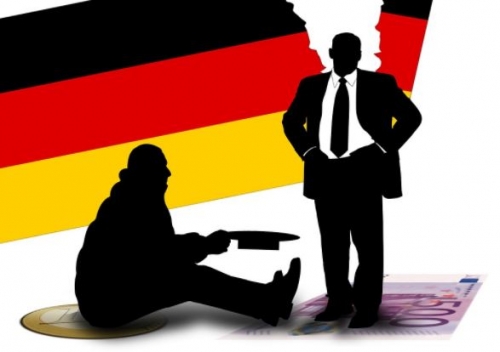
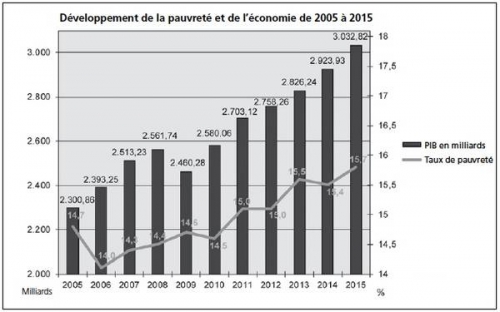
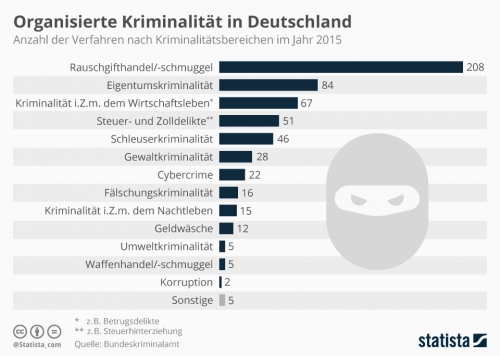

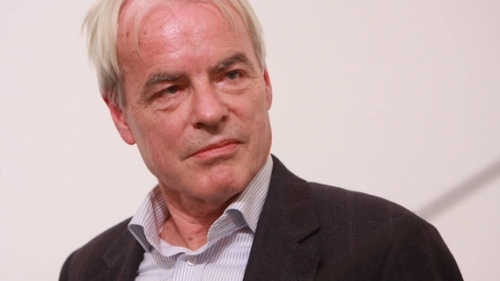
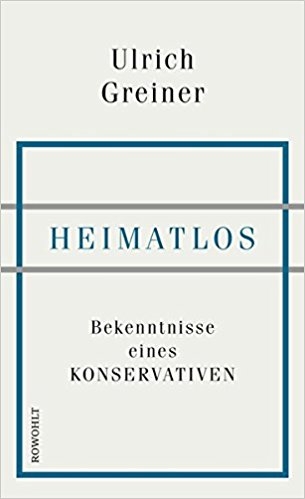 Intellektuelle wie Greiner haben sich schon immer als kritisch verstanden. Daher waren sie links zu Zeiten, wo der Mainstream noch konservativ war. Heute ist es andersherum. Die Linken und die Grünen, die dominanten Akteure der Mehrheitsparteien, die „kommentierende Klasse in den Medien“: „Sie alle fürchten, die Hoheit über den sogenannten Diskurs zu verlieren und die bislang unangefochtene Macht, die moralischen Standards des Öffentlichen zu bestimmen. Käme es dahin, ich würde es begrüßen.“ (S.7) So leitet Greiner sein Buch ein. Der Autor wendet sich dagegen, „dass jede Abweichung von der Mitte nach rechts mit dem Nazi-Vorwurf mundtot gemacht“ werde (S.9).
Intellektuelle wie Greiner haben sich schon immer als kritisch verstanden. Daher waren sie links zu Zeiten, wo der Mainstream noch konservativ war. Heute ist es andersherum. Die Linken und die Grünen, die dominanten Akteure der Mehrheitsparteien, die „kommentierende Klasse in den Medien“: „Sie alle fürchten, die Hoheit über den sogenannten Diskurs zu verlieren und die bislang unangefochtene Macht, die moralischen Standards des Öffentlichen zu bestimmen. Käme es dahin, ich würde es begrüßen.“ (S.7) So leitet Greiner sein Buch ein. Der Autor wendet sich dagegen, „dass jede Abweichung von der Mitte nach rechts mit dem Nazi-Vorwurf mundtot gemacht“ werde (S.9).
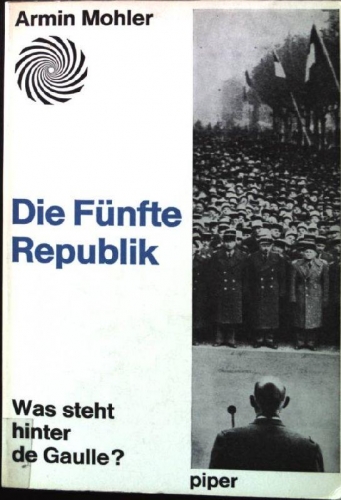
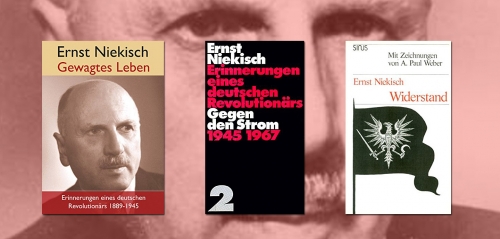
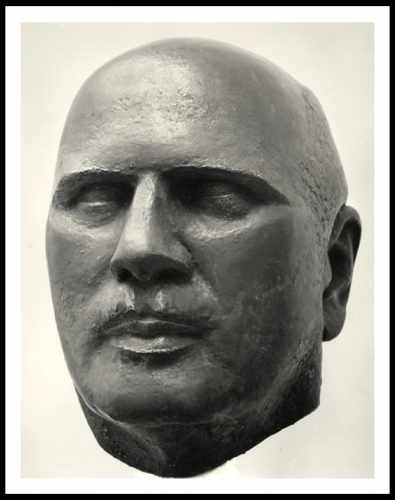
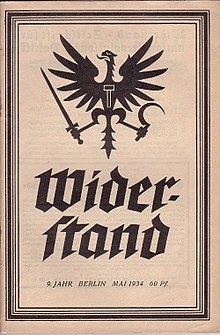 „Das preußische Schwert fand kein fruchtbares Verhältnis zum Geiste“, so verkündet der Autor der Deutschen Daseinsverfehlung sein Urteil gleich zu Beginn seiner Abhandlung. Das Bürgertum war die Quelle von Ideen, welche die althergebrachten und gottgewollt geglaubten Ordnungen ins Wanken bringen sollte – nur in den deutschen Territorien nicht. Jedenfalls nicht auf diese Länder und ihre Herren, die Landesfürsten, bezogen. Die Reformation als theologisch-politische Befreiung vom supranationalen Joch Roms übertrug sich nicht auf die deutschen Territorialfürsten.
„Das preußische Schwert fand kein fruchtbares Verhältnis zum Geiste“, so verkündet der Autor der Deutschen Daseinsverfehlung sein Urteil gleich zu Beginn seiner Abhandlung. Das Bürgertum war die Quelle von Ideen, welche die althergebrachten und gottgewollt geglaubten Ordnungen ins Wanken bringen sollte – nur in den deutschen Territorien nicht. Jedenfalls nicht auf diese Länder und ihre Herren, die Landesfürsten, bezogen. Die Reformation als theologisch-politische Befreiung vom supranationalen Joch Roms übertrug sich nicht auf die deutschen Territorialfürsten.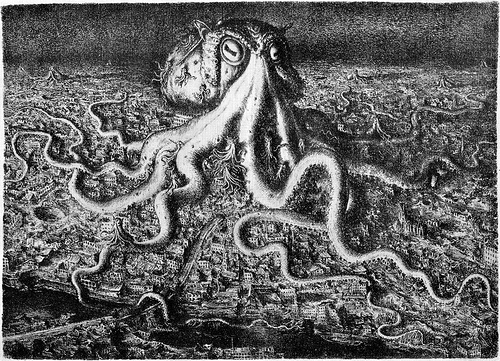
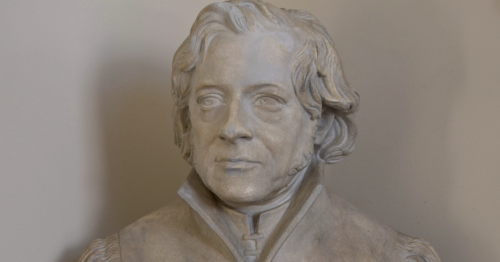
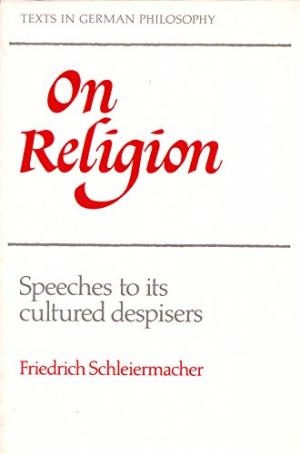 Schleiermacher thought that the Romantics’ criticism of religion applied only to external factors such as dogmas, opinions, and practices, which determine the social and historical form of religions. Religion was about the source of the external factors. He noted that, “as the childhood images of God and immortality vanished before my doubting eyes, piety remained.”
Schleiermacher thought that the Romantics’ criticism of religion applied only to external factors such as dogmas, opinions, and practices, which determine the social and historical form of religions. Religion was about the source of the external factors. He noted that, “as the childhood images of God and immortality vanished before my doubting eyes, piety remained.” The dialogue begins with the historical criticism of the Enlightenment, claiming that although the Christmas celebration is a powerful and vital present reality, it is hardly based on historical fact. The birth of Christ is only a legend. Schleiermacher rejects the historical empiricism of the Enlightenment since it results only in the discovery of insignificant causes for important events and the outcome of history becomes accidental. This is not good enough, “for history derives from epic and mythology, and these clearly lead to the identity of appearance and idea.” Therefore, he says, “it is precisely the task of history to make the particular immortal. Thus, the particular first gets its position and distinct existence in history by means of a higher treatment.”
The dialogue begins with the historical criticism of the Enlightenment, claiming that although the Christmas celebration is a powerful and vital present reality, it is hardly based on historical fact. The birth of Christ is only a legend. Schleiermacher rejects the historical empiricism of the Enlightenment since it results only in the discovery of insignificant causes for important events and the outcome of history becomes accidental. This is not good enough, “for history derives from epic and mythology, and these clearly lead to the identity of appearance and idea.” Therefore, he says, “it is precisely the task of history to make the particular immortal. Thus, the particular first gets its position and distinct existence in history by means of a higher treatment.”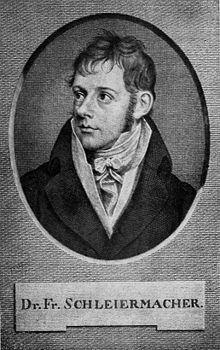 Schleiermacher and Fichte based their idea of university on the transcendental idealist philosophy and its new conception of science. A mere technical academy could not represent the totality of knowledge. According to Schleiermacher, “the totality of knowledge should be shown by perceiving the principles as well as the outline of all learning in such a way that one develops the ability to pursue each sphere of knowledge on his own.” All genuine and creative scholarly work must be rooted in the scientific spirit as expressed in philosophy.
Schleiermacher and Fichte based their idea of university on the transcendental idealist philosophy and its new conception of science. A mere technical academy could not represent the totality of knowledge. According to Schleiermacher, “the totality of knowledge should be shown by perceiving the principles as well as the outline of all learning in such a way that one develops the ability to pursue each sphere of knowledge on his own.” All genuine and creative scholarly work must be rooted in the scientific spirit as expressed in philosophy.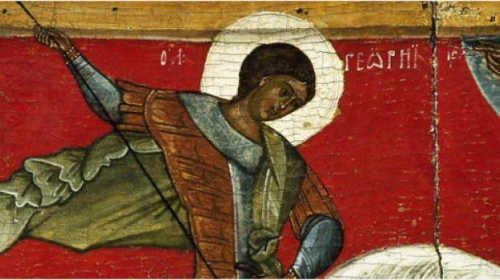
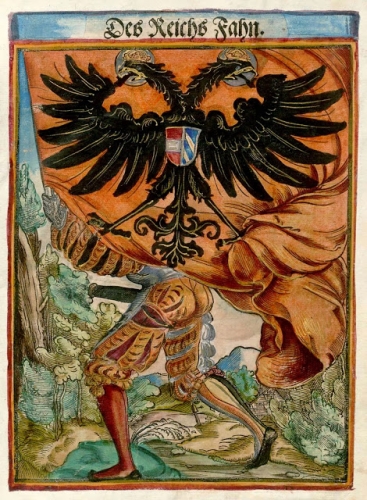
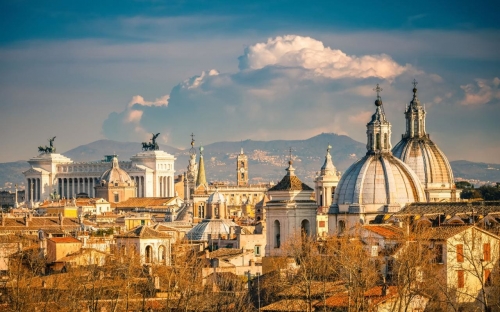

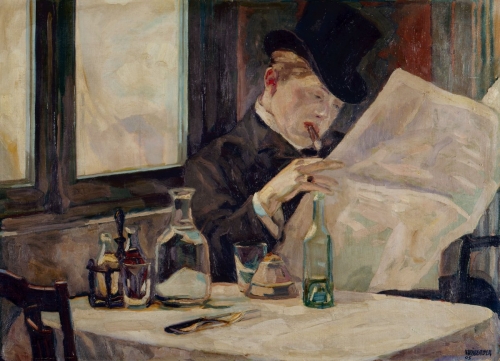
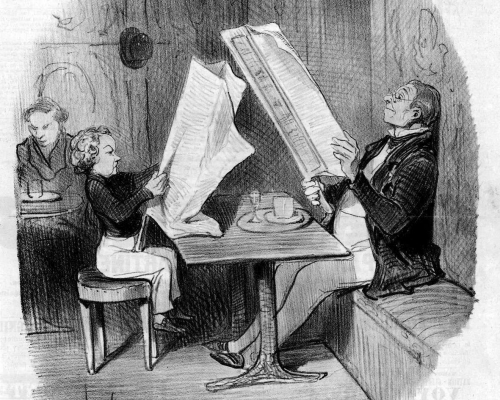










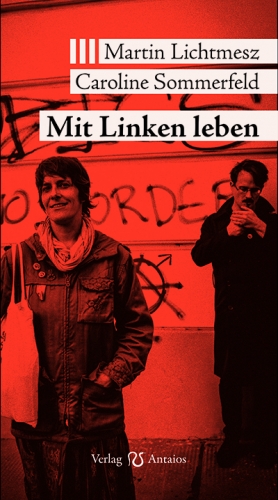
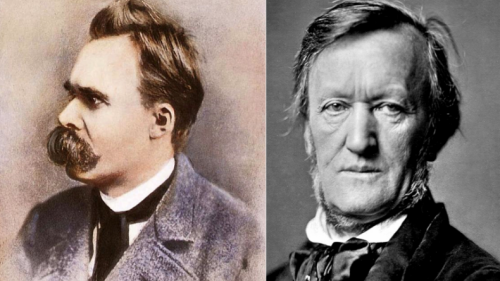
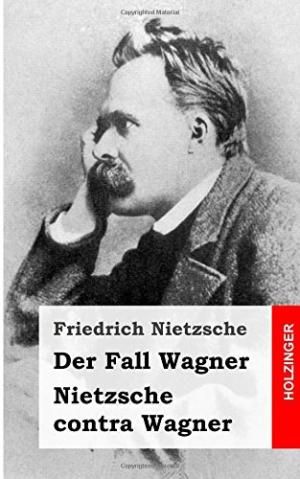 The cause of this misunderstanding of Euripidean tragedy may be traced back to Richard Wagner’s analyses of Greek drama in his Oper und Drama (Opera and Drama) (1851), Bk.III, Ch.3:
The cause of this misunderstanding of Euripidean tragedy may be traced back to Richard Wagner’s analyses of Greek drama in his Oper und Drama (Opera and Drama) (1851), Bk.III, Ch.3: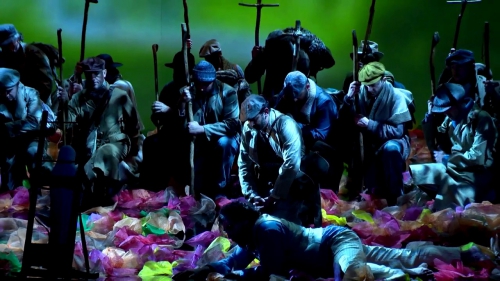







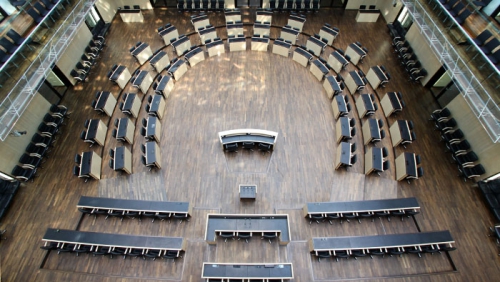

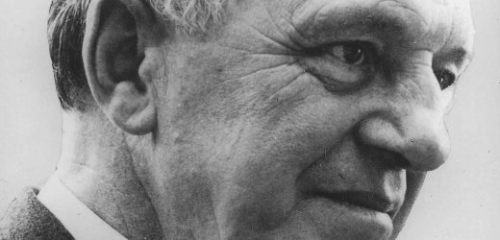

 O germanista norte-americano Anton H. Richter, em seu trabalho sobre o pensamento de Friedrich-Georg Jünger, ressalta quatro temas essenciais em nosso autor: a antiguidade clássica, a essência cíclica da existência, a técnica e o poder de o irracional. Em seus escritos sobre antiguidade grega, Friedrich-Georg Jünger reflete sobre a dicotomia dionisíaca/titânica. Como dionisismo, abrange o apolíneo e o pânico, numa frente unida de forças organizacionais intactas contra as distorções, a fragmentação e a unidimensionalidade do titanismo e do mecanicismo de nossos tempos. A atenção de Friedrich-Georg Jünger centra-se essencialmente nos elementos ctônicos e orgânicos da antiguidade clássica. Desta perspectiva, os motivos recorrentes de seus poemas são a luz, o fogo e a água, forças elementares às quais ele homenageia profundamente. Friedrich-Georg Jünger zomba da razão calculadora, da sua ineficiência fundamental exaltando, em contraste, o poder do vinho, da exuberância do festivo, do sublime que se aninha na dança e nas forças carnavalescas. A verdadeira compreensão da realidade é alcançada pela intuição das forças, dos poderes da natureza, do ctônico, do biológico, do somático e do sangue, que são armas muito mais efetivas do que a razão, que o verbo plano e unidimensional, desmembrado, purgado, decapitado, despojado: de tudo o que torna o homem moderno um ser de esquemas incompletos. Apolo traz a ordem clara e a serenidade imutável; Dionísio traz as forças lúdicas do vinho e das frutas, entendidos como uma dádiva, um êxtase, uma embriaguez reveladora, mas nunca uma inconsciência; Pan, guardião da natureza, traz a fertilidade. Diante desses doadores generosos e desinteressados, os titãs são usurpadores, acumuladores de riqueza, guerreiros cruéis e antiéticos que enfrentam os deuses da profusão e da abundância que às vezes conseguem matá-los, lacerando seus corpos, devorando-os.
O germanista norte-americano Anton H. Richter, em seu trabalho sobre o pensamento de Friedrich-Georg Jünger, ressalta quatro temas essenciais em nosso autor: a antiguidade clássica, a essência cíclica da existência, a técnica e o poder de o irracional. Em seus escritos sobre antiguidade grega, Friedrich-Georg Jünger reflete sobre a dicotomia dionisíaca/titânica. Como dionisismo, abrange o apolíneo e o pânico, numa frente unida de forças organizacionais intactas contra as distorções, a fragmentação e a unidimensionalidade do titanismo e do mecanicismo de nossos tempos. A atenção de Friedrich-Georg Jünger centra-se essencialmente nos elementos ctônicos e orgânicos da antiguidade clássica. Desta perspectiva, os motivos recorrentes de seus poemas são a luz, o fogo e a água, forças elementares às quais ele homenageia profundamente. Friedrich-Georg Jünger zomba da razão calculadora, da sua ineficiência fundamental exaltando, em contraste, o poder do vinho, da exuberância do festivo, do sublime que se aninha na dança e nas forças carnavalescas. A verdadeira compreensão da realidade é alcançada pela intuição das forças, dos poderes da natureza, do ctônico, do biológico, do somático e do sangue, que são armas muito mais efetivas do que a razão, que o verbo plano e unidimensional, desmembrado, purgado, decapitado, despojado: de tudo o que torna o homem moderno um ser de esquemas incompletos. Apolo traz a ordem clara e a serenidade imutável; Dionísio traz as forças lúdicas do vinho e das frutas, entendidos como uma dádiva, um êxtase, uma embriaguez reveladora, mas nunca uma inconsciência; Pan, guardião da natureza, traz a fertilidade. Diante desses doadores generosos e desinteressados, os titãs são usurpadores, acumuladores de riqueza, guerreiros cruéis e antiéticos que enfrentam os deuses da profusão e da abundância que às vezes conseguem matá-los, lacerando seus corpos, devorando-os.
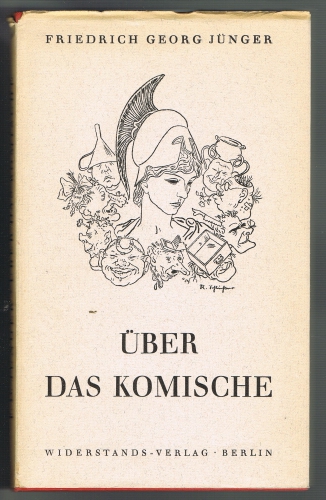
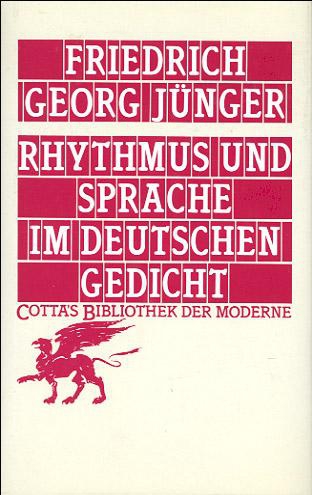 A mobilidade absoluta que inaugura a automação total se volta contra tudo tudo que pode significar duração e estabilidade, especificamente contra a propriedade (Eigentum). Friedrich-Georg Jünger, ao meditar sobre essa afirmação, define a propriedade de uma maneira original e particular. A existência de máquinas depende de uma concepção exclusivamente temporal, a existência da propriedade é devida a uma concepção espacial. A propriedade implica limites, definições, cercas, paredes e paredes, "clausuras" em suma. A eliminação dessas delimitações é uma razão de ser para o coletivismo técnico. A propriedade é sinônimo de um campo de ação limitado, circunscrito, fechado em um espaço específico e preciso. Para progredir de forma vetorial, a automação precisa pular os bloqueios da propriedade, um obstáculo para a instalação de seus onipresentes meios de controle, comunicação e conexão. Uma humanidade privada de todas as formas de propriedade não pode escapar da conexão total. O socialismo, na medida em que nega a propriedade, na medida em que rejeita o mundo das "zonas enclausuradas", facilita precisamente a conexão absoluta, que é sinônimo de manipulação absoluta. Segue-se que o proprietário de máquinas não é proprietário; o capitalismo mecanicista mina a ordem das propriedades, caracterizada por duração e estabilidade, em preferência de um dinamismo omnidisolvente. A independência da pessoa é uma impossibilidade nessa conexão aos fatos e ao modo de pensar próprio do instrumentalismo e do organizacionismo técnicos.
A mobilidade absoluta que inaugura a automação total se volta contra tudo tudo que pode significar duração e estabilidade, especificamente contra a propriedade (Eigentum). Friedrich-Georg Jünger, ao meditar sobre essa afirmação, define a propriedade de uma maneira original e particular. A existência de máquinas depende de uma concepção exclusivamente temporal, a existência da propriedade é devida a uma concepção espacial. A propriedade implica limites, definições, cercas, paredes e paredes, "clausuras" em suma. A eliminação dessas delimitações é uma razão de ser para o coletivismo técnico. A propriedade é sinônimo de um campo de ação limitado, circunscrito, fechado em um espaço específico e preciso. Para progredir de forma vetorial, a automação precisa pular os bloqueios da propriedade, um obstáculo para a instalação de seus onipresentes meios de controle, comunicação e conexão. Uma humanidade privada de todas as formas de propriedade não pode escapar da conexão total. O socialismo, na medida em que nega a propriedade, na medida em que rejeita o mundo das "zonas enclausuradas", facilita precisamente a conexão absoluta, que é sinônimo de manipulação absoluta. Segue-se que o proprietário de máquinas não é proprietário; o capitalismo mecanicista mina a ordem das propriedades, caracterizada por duração e estabilidade, em preferência de um dinamismo omnidisolvente. A independência da pessoa é uma impossibilidade nessa conexão aos fatos e ao modo de pensar próprio do instrumentalismo e do organizacionismo técnicos.